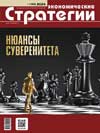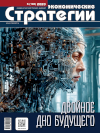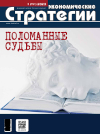Desperate Importance of Nuclear Renaissance for the Future of Japan
DOI: 10.33917/es-1.193.2024.18-25
Article explains current status of the Japanese nuclear industry as for mid 2023. It unveils political and economic factors and directions of its renaissance 12 year after the Fukushima Dai-Ichi NPP disaster in 2011. The contradiction of this process and the declared by the Japanese government Green Transformation (GX) initiative is underlined. Article lists limits of political, economic, technological and social nature which will define the actual success of the proposed nuclear program. Creation of the industrial and technological as well as political and social base of the fusion energy and fusion manufacturing industries is considered as the strategic reason for pushing the nuclear renaissance through these limits, as the way to the global leadership and domination of the Japanese ‘Society 5.0’. Special attention is paid to the strong will of the Japanese government to pragmatically sacrifices democratic values, concentrate all available resources, and set ambitious targets to win in this sumo fight and be first to build ‘thermonuclear Japan’. Also the specific side of the nuclear energy development — building up the Japanese nuclear weapon potential — is considered as the way to mitigate both geo- and technopolitical risks.
References:
1. G7 Hiroshima Leaders’ Communiqué [Website]. 2023, May, 20, available at: https://www.g7hiroshima.go.jp/documents/pdf/Leaders_Communique_01_en.pdf
2. Japan takes the lead in collaboration on the global energy transition. (Paid for and created by Government of Japan). Reuters Plus, available at: https://www.reuters.com/plus/japan-takes-the-lead-in-collaboration-on-the-global-energy-transition
3. Сarbon neutrality. Global Issues. Government of Japan [Website], available at: https://www.japan.go.jp/global_issues/carbon_neutrality/index.html
4. Overview of the Japanese Green Transformation (GX). GR Japan [Website]. 2023, January, available at: https://grjapan.com/sites/default/files/content/
articles/files/gr_japan_overview_of_gx_plans_january_2023.pdf
5. Towards Green Transformation (GX). Main points. (Provisional translation). Keidanren [Website]. 2022, May, 17, available at: https://www.keidanren.or.jp/en/policy/2022/043_point.pdf
6. Kishida eyes nuclear plant restart in green transformation push. The Japan Times, 2022, July, 28, available at: https://www.japantimes.co.jp/news/2022/07/28/business/koichi-hagiuda-green-minister-post/
7. Innovatsionnaya strategiya termoyadernoy energetiki [Innovative strategy for fusion energy]. Kabinet ministrov Yaponii, 2023, 14 aprelya, available at:
https://www8.cao.go.jp/cstp/fusion/fusion_senryaku.pdf
8. Integrated Innovation Strategy. Cabinet of Japan, 2022. June, 3, available at: https://www8.cao.go.jp/cstp/english/strategy_2022.pdf
9. Outline of Strategic Energy Plan. Agency for Natural Resources and Energy of Japan, 2021, October, available at: https://www.enecho.meti.go.jp/en/category/others/basic_plan/pdf/6th_outline.pdf














